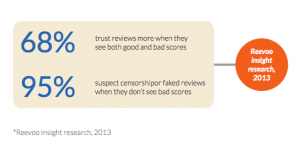 Whether you’re looking to kick off your career at a start-up, or want to move over from working in big business, working at a start-up may well require a whole host of new skills.
Whether you’re looking to kick off your career at a start-up, or want to move over from working in big business, working at a start-up may well require a whole host of new skills.
Start-up environments are constantly shifting and changing, and you will need to take on ad hoc duties while constantly looking for ways to propel the company to the next level. Hiring stakes are very high for small companies too, as they can’t take a gamble on a longer term return on investment of a new employee. They need to start seeing business benefit almost immediately.
As a result, you’ll need to demonstrate a wealth of different skills to impress a start-up for them to consider hiring you. So what are these skills?
Problem Solving
When you have a smaller team, and a new business idea, most people in the office will spend their day fighting fires and being reactive. Being able to balance this reactive work environment with doing the proactive things needed to push the company forward can be difficult, and a key skill is being able to approach problems in the most efficient way possible.
Your time is precious in a small team, and you need to be constantly looking at new challenges and how to best cope with them. If you can address existing ways of dealing with problems and come up with a more time-efficient, effective answer to them, you’ll be very useful in a start-up environment
Over-communicate
This idea comes courtesy of Pesh Kanthan, who was the third member of the team to come on board at start-up Mediamorph. When you’re in an environment where you’re trying to keep things ‘as lean as possible’, ensuring effective communication should come top of your list. ‘Whether things are going very well, or whether they’re going very poorly, it’s important to stay as on top of the communications as possible’, says Kanthan.
The key here is that you’re confident enough to be open with those are around you. If things are going well and you’re working ahead of schedule, be proactive in letting people know so that you can take on board new tasks. If the opposite is true and you’re falling behind or struggling to complete something, let them know so they can help you, or change the timeline.
Without clear systems in place for working with and managing deadlines, and set methods of communication, talking to people about your workload is key to the start-up succeeding.
Work ethic & dependability
The innovative, creative and fun environment often associated with a start-up does come mean there are often challenges, and one of those is how hard you have to work. With a small team, and everyone working across a variety of different roles in the company, it can often be a labour of love and you need to be passionate about what you’re doing.
It can be long hours, and hard work, and so you need to be prepared for this. In this environment, dependability is also essential because you need to be able to own projects and tasks. Your colleagues need to know that you can be trusted to follow a task through from start to finish.
Resilience
When you just start out, it’s natural to make a number of mistakes and to be faced with a lot of rejection. The ability to get over these mistakes quickly, pick yourself up and learn from them is essential success in a start up environment.
If a huge sale falls through last minute just before a key meeting, resiliency is the essential skill that will make sure you walk into that next meeting at the top of your game and ready to go again.
Knowing that you will make mistakes too is incredibly important when you’re part of a growing company. Fear of messing up is that one thing that will prevent you from trying something new or taking a risk that could be the catalyst for your business to succeed.
Organization
All businesses can be chaotic, but when you’re at a fledgling company it can be even more so. With ever evolving concepts, fewer established processes and with a focus on ideas, any efforts to improve efficiency and productivity is essential.
Personal organisation, provided it doesn’t become a burden on your time, can be extremely important. At a start-up, normally the ideas come first, but you’re unlikely to succeed if you’re constantly searching for key documents, losing client contacts and missing deadlines and business meetings.
Improvising and being adaptive
No matter what else, you will always wear a number of hats at a start-up. You may be brought in under a technical remit, but you could well be leading the strategy one minute, advising on marketing and promo next, before walking into a sales pitch after that.
The key to succeeding at a start-up is often being an expert in one field, and generally knowledgeable in a number of others. Your ability to pick up new things quickly will be put to the test, while adapting to new challenges and completing any number of different tasks on a daily basis is also key.
Finally, remember that your secondary skills could have an effect in a way you might not consider. Speaking a foreign language, being a keen artist or even being a pop culture addict may well put you into a position to grow the business in new and exciting ways that they couldn’t do without.
Author: Matt Arnerich
Business & Finance Articles on Business 2 Community(44)









